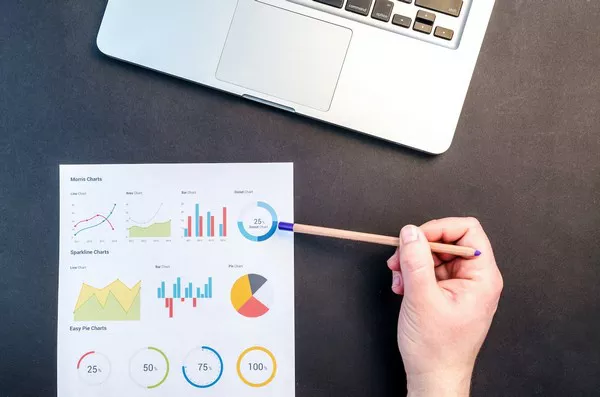Personality tests have become a ubiquitous tool in the modern world. From job interviews to online dating profiles, these assessments attempt to distill the complexities of human character into quantifiable data. Scoring high on these tests can be a valuable skill, whether you’re striving to land your dream job or find a compatible partner.
1. Demystifying Personality Tests: What Are They?
Before delving into the art of scoring high on personality tests, it’s crucial to understand what these assessments entail. Personality tests, often known as psychometric tests, evaluate various aspects of an individual’s character, such as traits, behavior, and preferences. They can be self-administered or conducted by professionals, and they aim to provide insights into how a person might respond to specific situations or environments.
2. The Many Faces of Personality Tests
There is a diverse array of personality tests available today, each with its unique approach and focus. Some of the most common types include:
Myers-Briggs Type Indicator (MBTI): This test categorizes individuals into one of 16 personality types based on preferences in areas like extroversion/introversion and thinking/feeling.
Big Five Personality Test: Also known as the Five-Factor Model, it assesses five key traits: openness, conscientiousness, extraversion, agreeableness, and neuroticism.
DISC Assessment: This test categorizes individuals into four primary personality types: Dominance, Influence, Steadiness, and Conscientiousness, which can provide insights into communication and interpersonal styles.
Enneagram Test: This assessment categorizes individuals into one of nine distinct personality types, each with its motivations, fears, and tendencies.
16PF (Sixteen Personality Factor Questionnaire): This test measures 16 primary personality factors, offering a detailed and comprehensive analysis of an individual’s character.
Understanding the type of personality test you are about to take is the first step in preparing effectively.
3. The Importance of Personality Tests
Personality tests serve various purposes in both personal and professional spheres. For employers, they can aid in selecting the right candidate for a job, ensuring a good fit with the company culture. In personal relationships, they can help individuals understand themselves and their partners better, potentially strengthening bonds and reducing conflicts. Additionally, some people use personality tests for personal development, seeking insights into areas where they can grow and improve.
4. Preparation Is Key
Like any other test, preparation can significantly improve your performance on personality tests. Start by familiarizing yourself with the specific test you will be taking. Research its format, the traits it assesses, and the scoring system. Practice tests are often available online, which can help you get a feel for the types of questions you might encounter.
5. Honesty vs. Tailoring: Striking a Balance
One of the key dilemmas individuals face when taking personality tests is whether to answer questions truthfully or tailor their responses to match what they believe the ideal candidate or partner should be like. Striking a balance between honesty and aligning your responses with the context is essential.
In professional settings, it’s generally advisable to answer questions honestly. Companies use these assessments to identify candidates whose personalities align with the job requirements and organizational culture. Misrepresenting your true personality can lead to a mismatch in the workplace, causing dissatisfaction for both you and your employer.
In personal relationships, it’s also crucial to be honest. Authenticity fosters genuine connections. Tailoring your responses to what you think someone wants to hear might lead to initial attraction, but sustaining a relationship built on deception is challenging and often unsatisfying.
6. Self-Reflection: Knowing Yourself
Scoring high on personality tests begins with self-awareness. Take the time to reflect on your personality, your strengths, weaknesses, and the traits that define you. This self-reflection can help you answer questions on the test more accurately and consistently with your true self.
7. Reading the Instructions Thoroughly
Before diving into the test questions, read the instructions carefully. Understand the format, time limits, and scoring system. Clear instructions can help you approach the test with confidence and reduce the chances of making avoidable errors.
8. Time Management
Most personality tests are timed, and pacing yourself is crucial. If you’re unsure about an answer, it’s better to make an educated guess and move on rather than getting stuck on a single question. You can always return to it later if time permits.
9. Consistency Matters
Personality tests often include the same or similar questions worded differently at various points in the test. Consistency in your responses is key. If you answer a question one way at the beginning and then differently later on, it could raise red flags for the test administrator or evaluator.
10. Understand the Trait Being Assessed
Each question on a personality test is designed to assess specific personality traits. Before answering, think about the trait the question is trying to uncover. This can help you respond more accurately and consistently with your true personality.
11. Avoid Extreme Responses
Personality tests often include questions that have extreme responses at both ends. Avoid choosing the most extreme option unless it genuinely reflects your personality. Moderation in responses is generally seen as more balanced and accurate.
12. Seek Feedback
After taking a personality test, especially in a professional context, it can be helpful to seek feedback. Discuss your results with a career counselor or HR representative to gain a deeper understanding of what the results mean and how they can be applied in your career development.
13. Embrace the Results
Whether you score high or low on a personality test, it’s essential to embrace the results with an open mind. These assessments are tools for self-discovery and personal growth. If your results indicate areas where you can improve, use them as a starting point for your personal development journey.
14. Continuous Learning and Adaptation
Finally, it’s important to remember that personality is not static. It evolves over time based on experiences, self-awareness, and personal growth. Use the insights gained from personality tests as a foundation for continuous learning and adaptation.
Conclusion
Personality tests are valuable tools that offer insights into various aspects of our character and behavior. Scoring high on these tests requires a combination of self-awareness, preparation, and authenticity. Whether you’re taking a personality test for professional or personal reasons, approaching it with a balanced mindset and a commitment to self-improvement can lead to more meaningful results. As you navigate the world of personality assessments, remember that these tests are not definitive judgments of your character but rather instruments to aid in your personal and professional development.
Related topics:





























